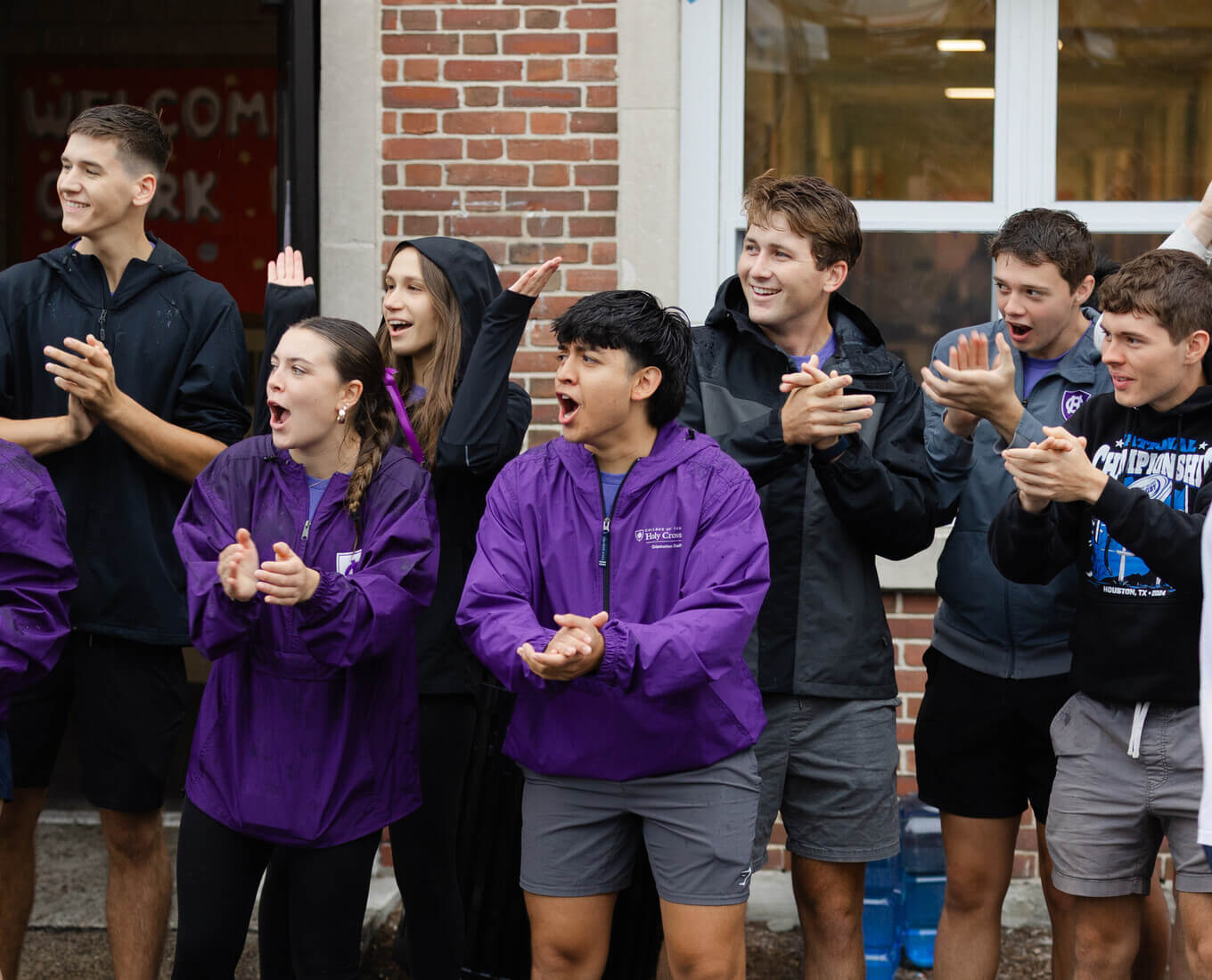 Margaret A. Post ’96 had gone through Catholic schools throughout her childhood and teenage years. It wasn’t until she attended Holy Cross, however, that she realized the significance of community and public service.
Margaret A. Post ’96 had gone through Catholic schools throughout her childhood and teenage years. It wasn’t until she attended Holy Cross, however, that she realized the significance of community and public service.
“I saw a link between my faith and spirituality and the work that I wanted to do,” she recalls, although her vocation was not yet clear.
As a student in the College Honors Program with a major in music and a concentration in Peace and Conflict Studies, Post participated in the Mexico Immersion Program. After graduating, she joined the Jesuit Volunteer Corps where she was involved in community organizing with young people. Following her time in California’s Central Valley, she spent the next year as an organizer at a Catholic parish in Boston working with youth and parents. Through these experiences and the relationships she developed, Post recognized that her faith tradition was calling her to carry on this social justice work.
She pursued a master’s degree in public policy from the Hubert H. Humphrey Institute of Public Affairs at the University of Minnesota. As part of her graduate work, she was involved with the Jane Addams School for Democracy in St. Paul, Minn., a community-based civic engagement and democratic initiative rooted in the belief that all members of the community are both teacher and learner. There, she tackled the real-life challenges of immigrants and new citizens.
“I spent Monday and Wednesday evenings studying with Hmong refugee women who were learning English and preparing for the U.S. citizenship test. We developed a variety of civic initiatives, including an organizing project aimed at improving education for their children who also came to Jane Addams. Despite our different languages and cultures, we collaborated to accomplish shared goals,” she says.
“I found that we all have a responsibility to participate in our democracy — immigrants, new citizens, and those of us who have lived here all our lives — we all have the capacity to respond to the most pressing problems we face locally, nationally and around the globe. I learned that this idea was central to building a more just and equitable society, and at the heart of my work as an educator.”
When the position of director of Community-Based Learning opened at Holy Cross, Post jumped at the opportunity. She returned to Holy Cross last August after the untimely passing of William Meinhofer, who led the office since its founding in 2001. She is completing her doctorate in social policy at the Heller School for Social Policy and Management at Brandeis University. Both her teaching and scholarship is related to civic engagement: Post’s thesis examines how community-based organizations build coalitions for health policy changes that impact immigrants. In addition, she has taught courses on social inequality and grassroots organizing that tie classroom learning with community experiences.
“Bill Meinhofer left an incredible legacy and I look forward to moving us ahead," Post says. "He began and institutionalized important pedagogical work across the curriculum. Hundreds and hundreds of Holy Cross students have participated in Community-Based Learning courses over the last six years. Together, we will build on this legacy.”
Students enrolled in a Community-Based Learning course may learn in a church, community or public service organization, or an education or health institution. Many placements consist of a weekly service commitment at a community site in the Worcester area over the course of the semester, for a total of 15-25 hours per semester. Other community-based learning courses focus on research that will benefit local organizations.
“Community-based learning is an excellent way for our college students to learn,” Post says. “It offers students the opportunity to wrestle with the theory and concepts of very complicated moral, civic, and social dilemmas. Through learning in the community, our students can experience these dilemmas first-hand.”
For example, in Freshwater Ecology, assistant professor of biology Bill Sobczak introduces students to the hydrology, chemistry, and ecology of freshwater ecosystems. As part of their fieldwork, students work to improve the water quality of the nearby Blackstone River and preserve the quality of the Quinapoxet River. Their work is part of The Blackstone River Coalition’s goal of a clean, fishable, swimmable river by 2015.
More than 20 percent of the faculty have taught courses in the program, and almost 25 percent of Holy Cross students are involved in community projects through these courses each year.
Among the local organizations participating in the College’s Community-Based Learning courses are: The Center for Living and Working, Inc., Big Brothers Big Sisters of Central Massachusetts, Boys & Girls Club of Worcester, Centro Las Americas, Massachusetts Audubon Society, Nativity School, and the South Worcester Neighborhood Center.
The Donelan Office of Community-Based Learning was established with a $1.2 million endowment from former trustee and alumnus Joseph P. Donelan II ’72.
“Our benefactor is passionately committed to having our students engage in the vibrant life of the Worcester community and contribute to making it a better place through their actions,” Post says.
The work students do in the community will ultimately allow them to become world-class leaders, prepared to live out the Jesuit traditions of service and social justice.
“I believe that my work as an educator is to prepare our students to live engaged lives committed to justice and public service, no matter what profession they choose,” Post says. “Our world hungers for leaders who can think critically about the realities of living in a global society, who can ask the tough ethical questions, and who can take action out of that understanding. Creating engaged learning opportunities in classes across the curriculum is a place where that work can begin.”
Related Information:
New Director of Community-Based Learning Plans to Carry on Holy Cross’ Storied Tradition of Community Service
Read Time
4 Minutes
